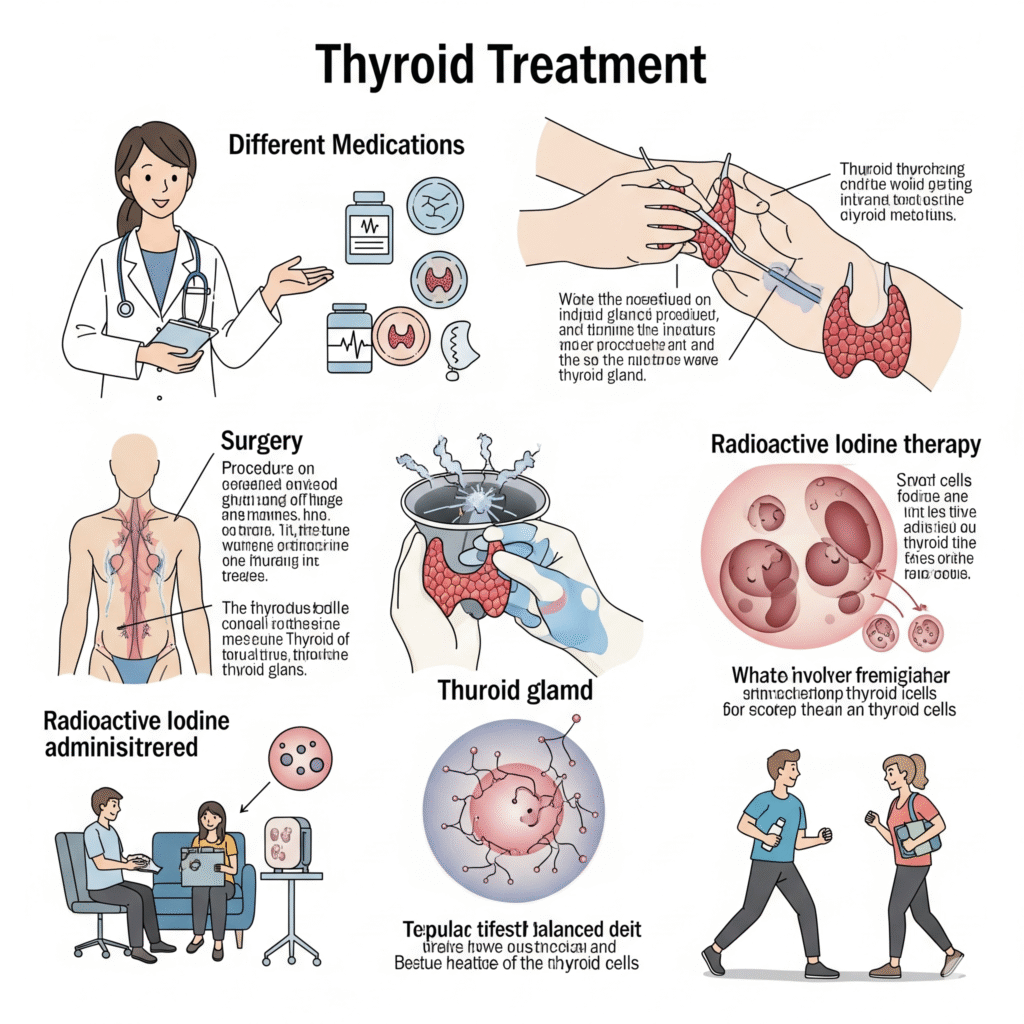
Thyroid Treatment
Thyroid treatment depends on the type of thyroid disorder — mainly hypothyroidism (underactive thyroid) or hyperthyroidism (overactive thyroid). For hypothyroidism, the standard treatment is daily thyroid hormone replacement therapy, usually with levothyroxine, a synthetic form of the hormone thyroxine (T4). This helps restore normal hormone levels, relieving symptoms like fatigue, weight gain, dry skin, and sensitivity to cold. Regular blood tests are needed to monitor thyroid hormone levels and adjust medication doses to keep them within the optimal range. Patients should take their medication consistently, usually on an empty stomach, as certain foods or medications can interfere with absorption.
For hyperthyroidism, treatment focuses on reducing the overproduction of thyroid hormones. This can involve antithyroid medications like methimazole or propylthiouracil, which block hormone production; radioactive iodine therapy, which damages overactive thyroid cells; or in some cases, surgery to remove part or all of the thyroid gland. Beta-blockers may also be prescribed to control symptoms like rapid heartbeat and tremors. After treatment, some patients may develop hypothyroidism and need hormone replacement. Ongoing follow-up with an endocrinologist or healthcare provider is essential to monitor hormone levels and adjust treatment over time, ensuring long-term health and symptom control.
